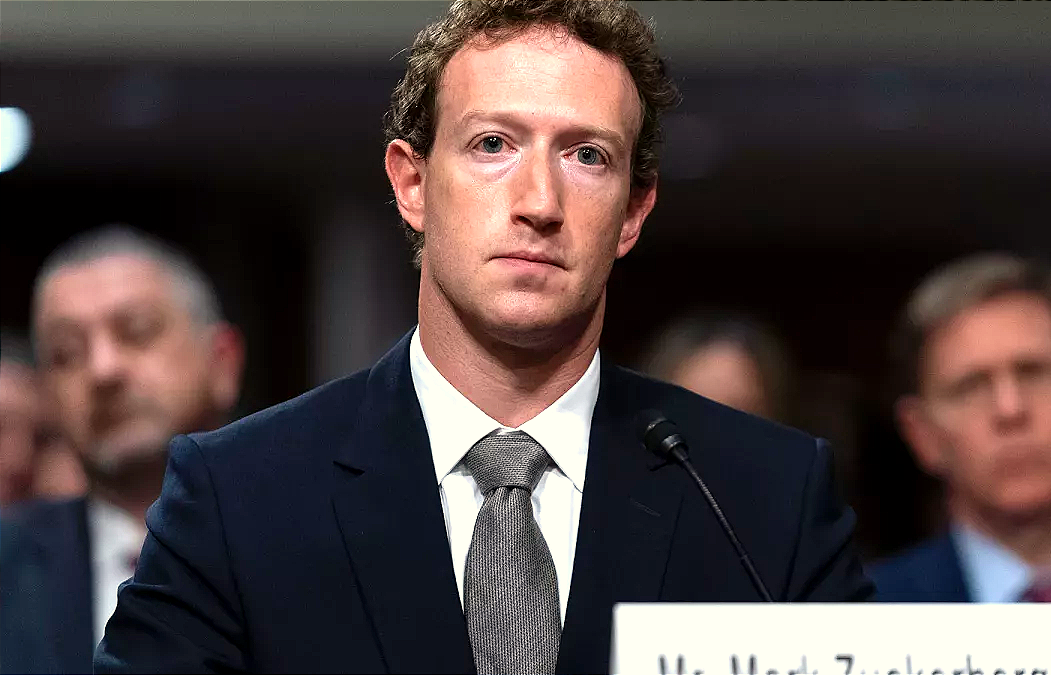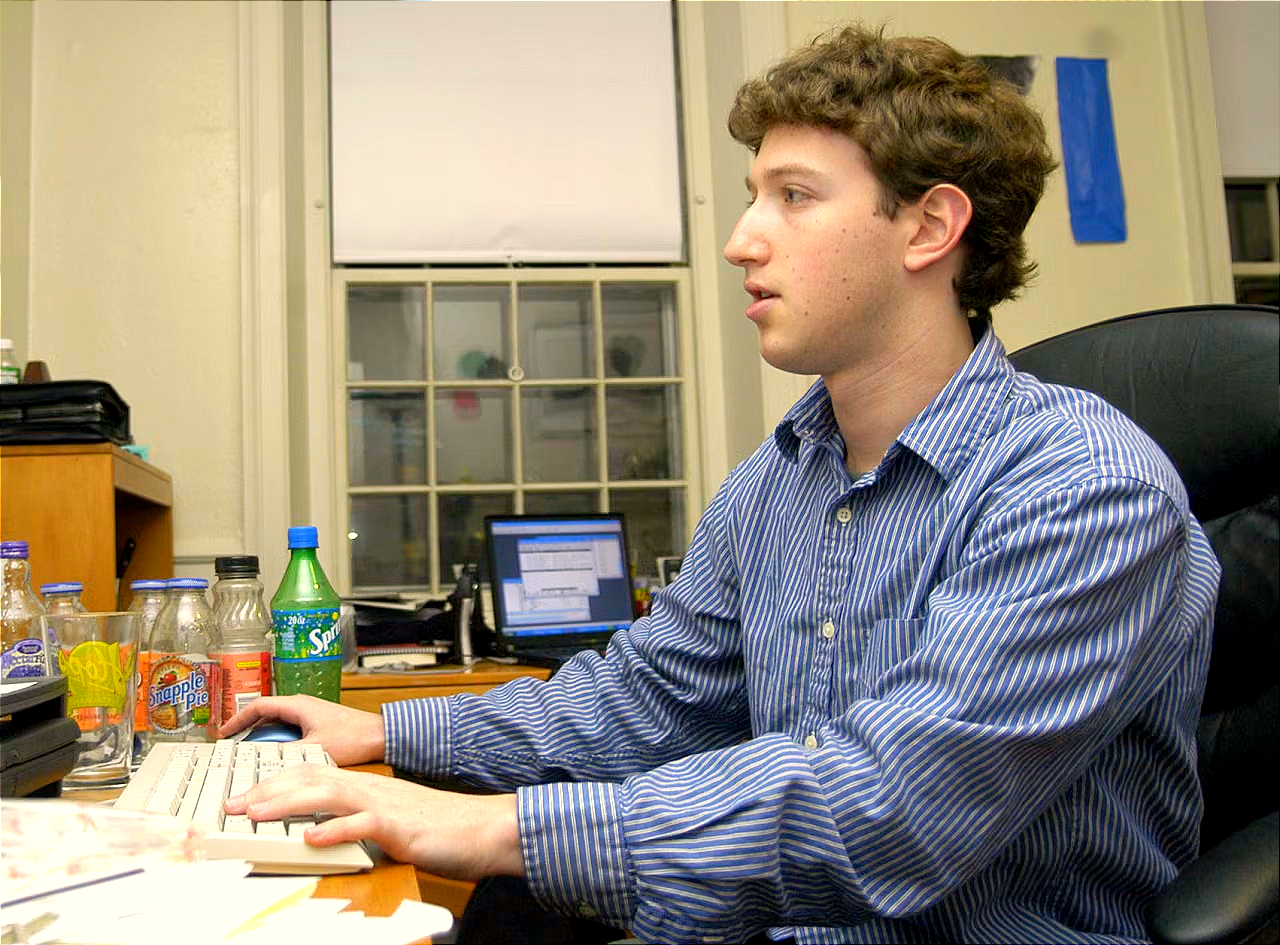Meta may be bad but the FTC's antitrust case is still weak

Writing about the government's antitrust case against Meta is a little like putting on an old sweater — it's comfortable and worn, but also has kind of a funky smell (maybe it's best for everyone if I don't continue with this metaphor). In any case, I have been writing about this topic off and on for more than half a decade now. I wrote about it for the Columbia Journalism Review (where I was the chief digital writer from 2017 to 2024) when the case was first launched in 2020, at the tail end of the first Trump administration. After a bunch of presentations from the Federal Trade Commission and a variety of opinions from Meta watchers and antitrust experts, the case was thrown out because Judge Boasberg of the US District Court for the District of Columbia said the government failed to provide compelling evidence that Meta had a monopoly on the market for any kind of distinct market for something known as "social networking."
I wrote about the case again in 2020 when it was revived by the Biden administration, based in part on arguments from antitrust theorist Lina Khan, who took over as the chairman of the FTC. At that point, Boasberg ruled that the government had met his test for showing that Meta had a monopoly on a distinct enough market for him to let the case proceed. At the time, he said that "while there are certainly bones one could pick with the FTC’s market-definition allegations, the Court does not find them fatally devoid of meat." Meta tried to get the court to dismiss the case in 2022 for a variety of reasons, none of which had much substance, and then both sides basically said they needed more time to get their arguments in order and marshall all of the evidence, and that's how it took three years before the case actually showed up in court.
During that time, of course, the US switched presidents, and Trump returned for a second term. That's when all hell broke loose on a host of different fronts: massive tariffs against China and dozens of other nations, threats to take over Greenland and the Panama Canal, threats to make Canada the 51st state, mass deportations of alleged criminals — including some US citizens and green-card holders — to a for-profit prison in El Salvador, without a trial or any evidence being provided (Boasberg is also hearing a case about that, by a strange coincidence). Homeland Security and ICE are using artificial intelligence and surveillance software to track down "undesirables," including anyone who has said anything even remotely positive about Palestine, or remotely negative about either Trump or his bizarre and likely also illegal policies (I wrote about this for last week's edition of The Torment Nexus, in case you missed it)
I realize that an antitrust case against Meta pales in comparison to the wholesale repudiation of human rights and the rule of law that we are seeing on a daily basis, but I thought it might be instructive to pretend that the rule of law still exists, and look at the government's case against Meta. You can get a sense of what I think about this issue from my headline, but in case that wasn't clear enough, I think that the government's case against Meta is weak — terminally weak. In a nutshell, there are all kinds of things we can criticize (and have criticized) the company for, including a failure to think hard enough about the impact of its algorithms on peoples' mental health, the well-being of teens, the overall marketplace for disinformation, etc. But just because we don't like it, or don't like Mark Zuckerberg (who took the stand in the case this week), doesn't mean Meta meets the legal test for monopoly, or that the government's remedies — including selling Instagram and/or WhatsApp — are going to make anything better.
Note: Hi everyone, this is The Torment Nexus. You can find out more about me and this newsletter in this post. This newsletter survives solely on your contributions, so please sign up for a paying subscription or visit my Patreon, which you can find here. I also publish a daily email newsletter of odd or interesting links called When The Going Gets Weird, which is here.
Why is a monopoly bad?

I think it's important to note that while people like to throw around the term "monopoly" in a way that makes it obvious that having one is evil, in a legal sense — in the United States at least — it's not illegal to simply have a monopoly. What is illegal is to have obtained that monopoly through illegal means — collusion, market manipulation or other anti-competitive acts, etc. — or to have maintained a monopoly through illegal means. Without getting too far into the weeds from a legal perspective, the way that the courts think about monopolies has changed over time. In the early days of the Sherman Act, in the 1800s, simply having a monopoly, the way John D. Rockefeller had over oil, was considered to be bad because it decreased competition. But in modern times, US courts have defined harm by looking not at whether competitors or even the market are harmed, but whether consumers have been harmed as a result of higher prices, less choice, etc.
This was a great approach right up until the internet came along, and the cost of content and services decreased to virtually zero, both because making things out of ones and zeroes is cheaper and because advertising replaced the need to pay for things in a traditional manner. So if I don't pay for Facebook, or Instagram, or Google, or a hundred other services — except by paying with my attention, of course — then how can the harms of a monopoly or of an anti-competitive marketplace be measured? Prices aren't higher because there aren't any prices for the consumer. There's still the argument that choice is lessened, but how do you prove that? Lina Khan and others theorized that harm could occur in the form of lower quality — so Facebook could be accused of not caring about serving its users because of its monopoly, and that is harmful. This is appealing, but it hasn't really been tested in court as an antitrust argument.
So if having a monopoly isn't illegal, why all the attention on whether the FTC has successfully proven that Meta has one? Because everything flows from that — behavior that might otherwise be perfectly okay (say, coming to an agreement with a competitor over pricing) can become anti-competitive if the company engaging in it has a monopoly. And despite Justice Boasberg's statements from 2022, the government's case has not gotten any stronger on that point — if anything, it's gotten significantly weaker. In the early 2020s, it might have been arguable that Facebook had control over a significant market, and that other competitors were not even close. But TikTok changed that in a relatively short space of time, and effectively torpedoed most of the Justice Department's claims about how powerful Meta and its services are. Ben Thompson has made this point in a number of his Stratechery newsletters, including this one:
I have already stated my position on this case: I think it’s a poor one, and the government’s market definition — in which Meta’s only competitors are Snap and MeWe(?) — is absurd; unsurprisingly, I find Meta’s opening statement presentation, which is particularly focused on the market definition question, very persuasive. What is striking to me, however, is how the temporal aspect of this case makes everything a bit of a muddle. Facebook acquired Instagram in 2012, just a month before their IPO; the stock closed that day at $38, and was half that price just a few months later, as the market was skeptical that the company would manage that mobile shift. Instagram, meanwhile, had a mere million users, and while it was mobile first, it barely had any employees and no revenue; the acquisition was investigated by the FTC but approved the same month that Facebook’s stock hit its nadir.
What market are we talking about?

The FTC's claim insists that Meta controls a dominant portion of the market for "personal social networking services." But what is that exactly? That's where things start to fall apart. As the Competitive Enterprise Institute noted, "If you’ve never heard the term “personal social networking services” before, you’re not alone. The FTC and attorneys general made it up just for their Facebook cases. And they both define it in such a way that excludes TikTok—a curious oversight." According to the government's argument, Facebook caters to people who want to connect with their friends, and TikTok and other apps cater to people who (I am paraphrasing here) just want to see random video slop created by strangers who dance incessantly or make weird recipes. The only other companies in Facebook's market, according to the FTC, are SnapChat and a service called MeWe — which until this week I had never heard of, and I write about this for a living.
Thompson has written in the past (as I have) about the flaws in the FTC's carefully crafted market definition, including this:
While it is nice that the FTC bothered to include TikTok in their complaint — the December complaint didn’t mention the app once — any definition that says that Instagram is like Facebook but is not like TikTok is ridiculous. Both let you connect with people you know, but both are primarily focused on broadcast-follow dynamics, not interpersonal communication. This distinction, in conjunction with the previous one, is again motivated reasoning: Facebook is much more like LinkedIn, and Instagram is much more like TikTok, but that’s a problem for the FTC because it ruins their case. The far bigger problem, though, is that everything I just wrote is meaningless, because everything listed above is a non-rivalrous digital service with zero marginal costs and zero transactional costs; users can and do use all of them at the same time.
This is another sign of how time and the changing nature of online and mobile culture has eclipsed the FTC's case. Perhaps in the latter part of the first decade of the 2000s, when this case was first coming together, Facebook seemed invincible, and its hold over our relationships with our friends was huge. Congress was investigating whether it was manipulating the minds of Americans in a variety of ways, including whether it helped swing the 2016 election on behalf of the Russians. But that version of Facebook supremacy didn't last very long — TikTok came along, and changed the game. It was almost all algorithm-driven, as opposed to being based on a "friend graph." And soon all the concerns about manipulating minds and being used by totalitarian states (in this case, China) were focused not on Facebook but on TikTok. And Meta has spent the past few years trying desperately to make both Facebook and Instagram more like TikTok.
As Ben mentions, Facebook's acquisition of Instagram is one of the key aspects of this case, with the FTC arguing that the deal was anti-competitive by its very nature. But at the time, it wasn't clear to anyone that it was going to be as game-changing as it was. Thompson says he was confident that it was a big deal, but "the market was not; there was just as much mocking of Facebook as there was praise," based in part on the then-astronomical-seeming price of $1 billion for a company with virtually no revenues. And let's remember that the FTC looked at the deal and approved it, so the current case represents an attempt to review a case that has been settled for more than a decade. If someone had argued in 2012 — before Facebook even went public — that buying a tiny image-sharing app with no revenues would be worth $100 billion or so in ten years, that person would have been accused of indulging in mind-altering drugs.
The FTC's case has aged badly

It seems fundamentally wrong to be re-litigating regulatory decisions of this nature years after the fact — making decisions with the luxury of 20-20 hindsight. As Ben puts it, the government is "making a case from the late 2010s, using evidence from the early 2010s, that Meta is a monopoly in the 2020s, and thus should have to divest acquisitions made over a decade ago. It just doesn’t make sense, because it doesn’t consider time and the dynamic nature of markets; it is an unfortunate example of exactly how antitrust enforcement can go wrong." Is a Zuckerberg email still a "smoking gun" if the gun went off over a decade ago?
A similar argument could be used in the case of WhatsApp, which Facebook bought in 2014 for $19 billion — although in some ways that is a stronger part of the case, since WhatsApp was significantly larger and far more dominant in its respective market (non-US instant messaging) than Instagram was. But would spinning off either Instagram or WhatsApp solve any real problems, the ones that the FTC is theoretically supposed to be focused on? It might carve a large hole in Meta's revenue-generating ability — since some estimate that Instagram now accounts for more than half of Meta's advertising revenues — but it's not clear that it would improve competitiveness in the market.
Is Facebook really large? Yes. Do a lot of people spend a lot of time there? Again, yes — although younger people don't spend as much as they used to, which is something Mark Zuckerberg probably stays awake thinking about. Does all of this size and power give Meta and Facebook the ability to harm consumers in ways other than charging them money for things? Arguably yes. If this was a truly competitive market, for example, Facebook might have a customer support department that is staffed with people who want to help, but it has nothing even remotely like that — as anyone who has tried to reach an actual human being at Facebook or Instagram knows full well. Should we be concerned about Facebook's impact on society and our mental health? Definitely.
All that said, antitrust is a particularly blunt instrument — and arguably is not even capable of solving any of these problems, even if it were to be applied in the right way. And cooking up a Rube Goldberg-style definition of social networking in order to make the case stick doesn't do anyone any good.
Got any thoughts or comments? Feel free to either leave them here, or post them on Substack or on my website, or you can also reach me on Twitter, Threads, BlueSky or Mastodon. And thanks for being a reader.



